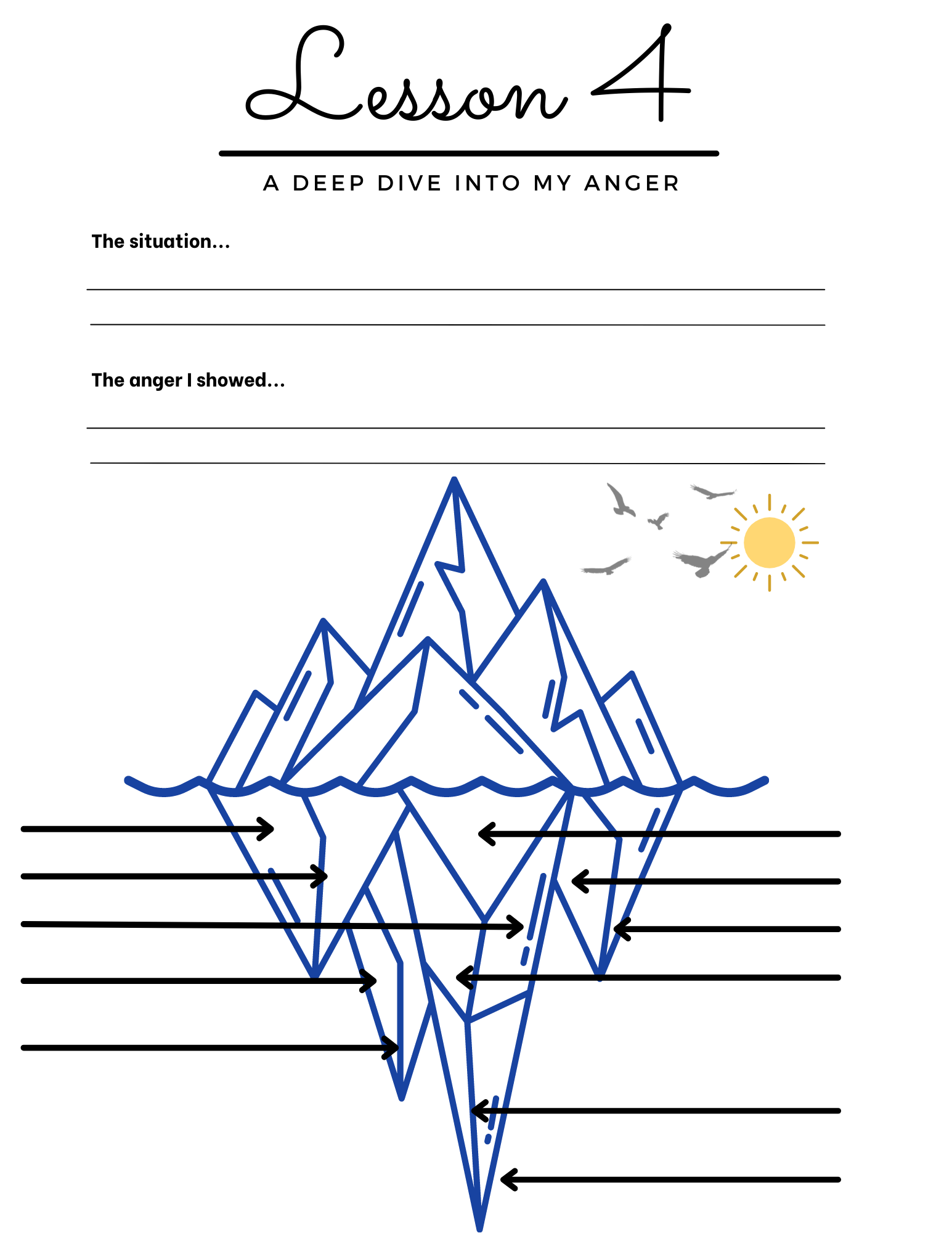Activity To Help Your Child With Feelings
It is vital to provide children with space to develop their skills in processing feelings. This skill will continue to support them during childhood and adulthood.
Processing Emotions
The iceberg activity is a mental health exercise that can help kids learn how to process what they are feeling and release their emotion in a healthy and constructive way.
Imagine that you are on a boat and see a massive iceberg poking out of the water. You are aware that below the water, there is more of the iceberg. More than likely a much larger piece of ice is below the water.

An example of the iceberg activity is seen below.
Your child runs to their room and slams the door. You follow and ask them how they are feeling. They tell you that they are feeling angry.
At this point, you know that anger is the tip of the iceberg. You are also aware that the behaviors they are displaying connect to anger.
The next step is trying to support your child by exploring the bottom of the iceberg. You can do this in various ways.
Draw an iceberg on a sheet of paper with a horizontal line in the middle. Encourage your child to fill in the bottom of the iceberg. Questions that can help them include:
- What were you feeling today that led to you being angry?
- Other than feeling angry, what else did you feel?
- Before you felt angry, what did you feel?
This is a wonderful activity to complete one to two times per week. Not just when there is a loud issue that takes place. Practicing this activity consistently supports your child in building strength by processing their thoughts and feelings in a healthy and productive way.
Benefits of using the iceberg activity:
- Helps your child with understanding what they are feeling.
- Helps your child explore different types of feelings.
- Helps your child process their feeling and behavior.
- Helps your child shift away from unhealthy behaviors.
For more readings on therapy support for parents and kids see the links below:




